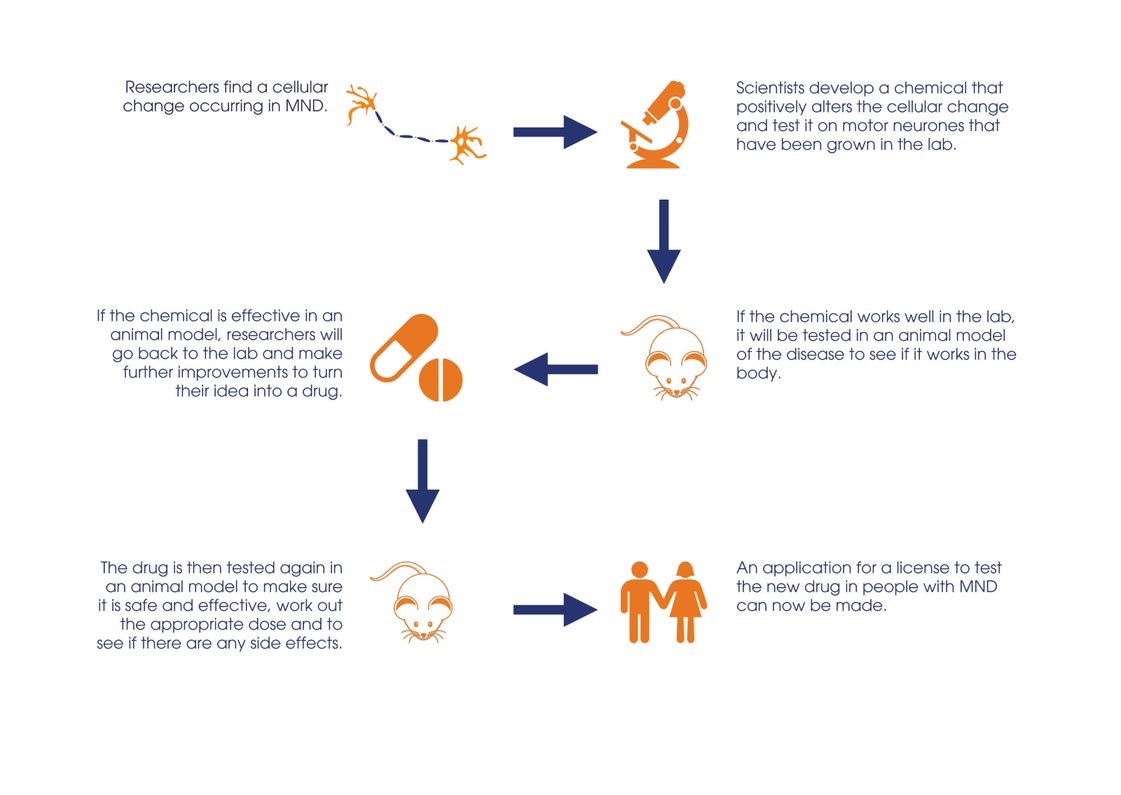Currently there is no treatment that will halt the progress of MND although one drug, riluzole has shown a modest benefit for some people. Research involving animals was important for the discovery of this drug.
Animal research can help us understand the causes of MND
Understanding how faulty genes cause MND couldn't be done without animal research. By genetically altering mice (called transgenic mice), something that can't be legally done in people, researchers have been able to show that faulty versions of genes such as SOD1, C9ORF72 and TARDBP are causes of familial MND. This has led to a greater understanding of what triggers both familial and sporadic MND, and paves the way towards potential new therapies.
Animal research is an important way to develop and test new drugs
Before a drug can be approved for use in a clinical trial in humans, safety and efficacy tests are conducted using cells and animals. Animal tests show how the medicine reacts in the living body, helps researchers to work out the best dose for clinical trials and detects potentially toxic effects before it is given to human volunteers. This minimises the risk to people living the MND during the development of new treatments.
How animals can be involved in developing drugs to fight MND
